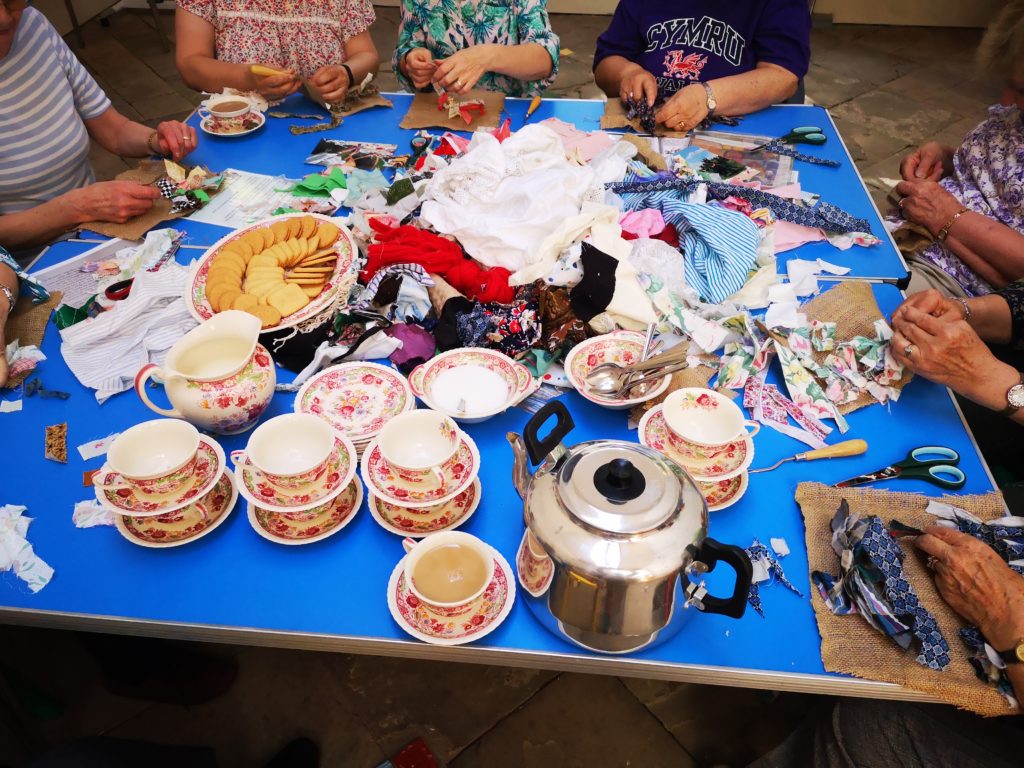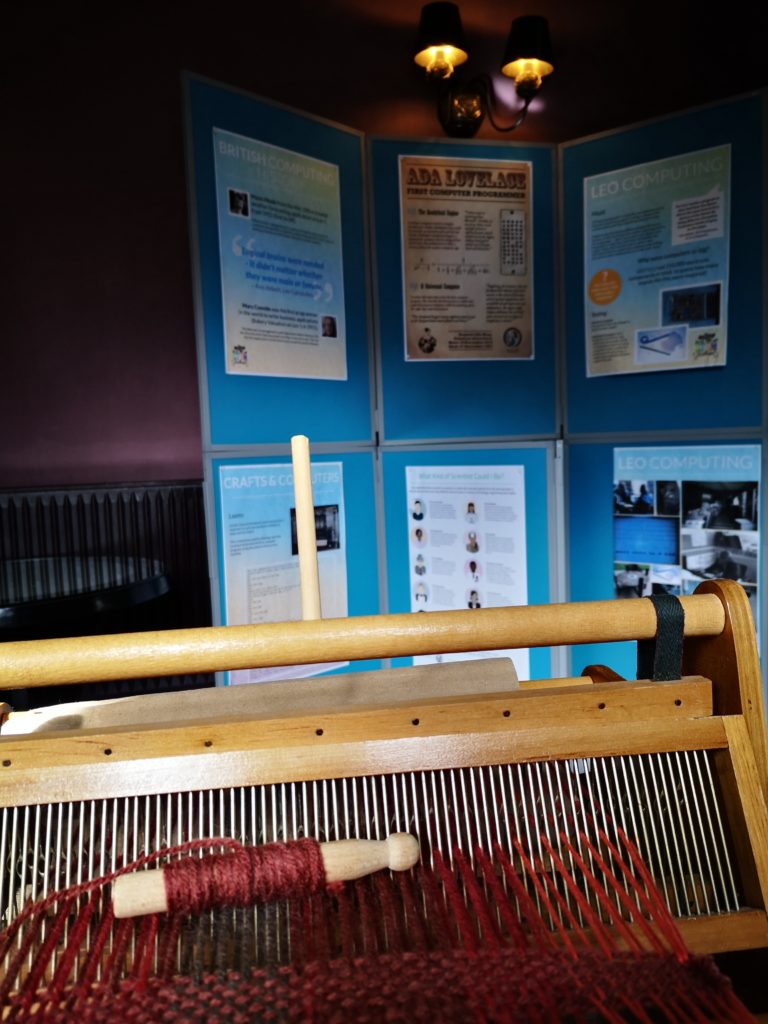Today we’re sharing a very timely blog from Fun Palaces Maker Lorena Hodgson of Wisbech Radicals Fun Palace.

Lorena says of herself: I see myself as a maker. Also a curator, producer and educator. I play Minecraft, and have combined that with weaving, Raspberry Pi and the History of Computing. I enjoy teaching others new skills and setting them off on a creative journey of their own. In the arts and heritage sector, I have spent 8+ years building a combined practice of events/project management and crafts for everyone in association with support groups. I have been funded via Arts Council and Lottery funding “at arm’s length” via others.
Things are moving too quickly. As a long time home educator, someone who’s lived with very little income, vegetarian, with a garden that is based on permaculture principles; a tech person, good with digital tools (beyond the usual social media), including tech used for education; and a maker, particularly of what used to be termed “home crafts” – this lockdown is making me want to shout out. It is full of everyone telling everyone else about all these fabulous new ideas, projects, how-tos; miraculously discovering how we can live on so little; how our children can learn without school, how great creativity is for mental health.
It’s driving me crazy, if I’m honest. The biggest problem of all this fabulous outpouring of “wow, look at what life can be” is that those who are doing the outpouring are ignoring those experienced in it. They may be intending to create a whole new world, but surely they must realise that there was this world all along? Just that we were ignored, considered a bit kooky, yoghurt knitting crunchy mamas with their beardy hippy partners and feral children. (we are crocheting yoghurt and have feral children, but now everyone does so we’re not so weird).
There are definitely some heroes (the care and supply professions go without saying, I’m talking about those who normally work elsewhere and have found themselves with the time to spend helping others way more than they used to) The independent companies that are turning their hand to new offers, or offering their skills for free. These small, local, niche businesses are run by dedicated people who are doing something they love, and are doing whatever they can to help the community they love, hoping that they will still be there for them when it all calms down and they can still make a living. These are some of the people that should be involved in the new world order.
The arts establishment, particularly organisations that are expert at getting funding, needs to change, they are patronising towards the poorer in society. This is now echoed across sectors, not just in the arts.
If they got the funding to do fabulous work, then go ahead, I look forward to seeing it. But if they got the funding specifically to help “poor” communities? Then they have to work for those communities, not themselves or other arts organisations. They have to respect those they are funded to lead towards more arts – I see the benefits, I want to encourage people, but we can’t force people, especially those who have no time or money, and have more serious things to worry about.
If we are to promote it, then “culture” should be for all – we should not be saying which arts, which bits of culture, for which people; we should be asking them what they want to see and do with regard to the cultural assets in their communities. They should be asked: what are the assets? Who should manage them, are they yours? Encouraged to see the benefits of engaging with their heritage and arts provision, encouraged to see that they too are providers of arts projects if they want to be, and that the benefits work for one person making a pompom at home as much as for a crowd of people to see a classical concert or a comedy play at the theatre.
If you want to help the people, ask the people, then do what they ask. If you are trusted to handle the money, and trusted to do the right thing, you have to trust those you are paid to help, you are their employees, you are paid to help them. Trust that they know what they want. That may not be what you think, but you are not them. Help them do what they want, gain their trust in return. Show them all the other wonderful things that you want to show them, then help them get there, when they are ready. That is a measure of success of the funding – it will have helped those it was meant to reach, not just those who received the money.
Helping everyone access cultural activities and assets near where they live, as well as helping them do something beyond day to day life, on their own or with others, is rewarding and should be the focus. Working with the community where the community is; giving tiny opportunities to start with and big opportunities, at no or low cost, to aim for.
Helping everyone move towards a more creative future can only be done if they have access and time, with encouragement for the inclination. If we can provide small, quick, activities at groups already established, or right now, provide something at a distance, then we can spend time listening and receiving ideas on what everyone wants for the future. I have ideas for the future, they won’t be the same as someone in a different situation to me, but they might be similar enough that we could work together. I may look up to a brilliant artist and want to learn from them, with technology as it is today, that can be done. Free courses, free meeting spaces, encouragement to “play” together can all be easy steps towards the future, while listening to those who have already lived the life many may want to live now.
There are many people experienced in living simpler more creative lives, and there are many people already linked with community groups, well-networked but under-recognised and under-funded. They are already there.
Stop, Look and Listen, then offer them the funding, respect their choices and trust them to use it wisely.

